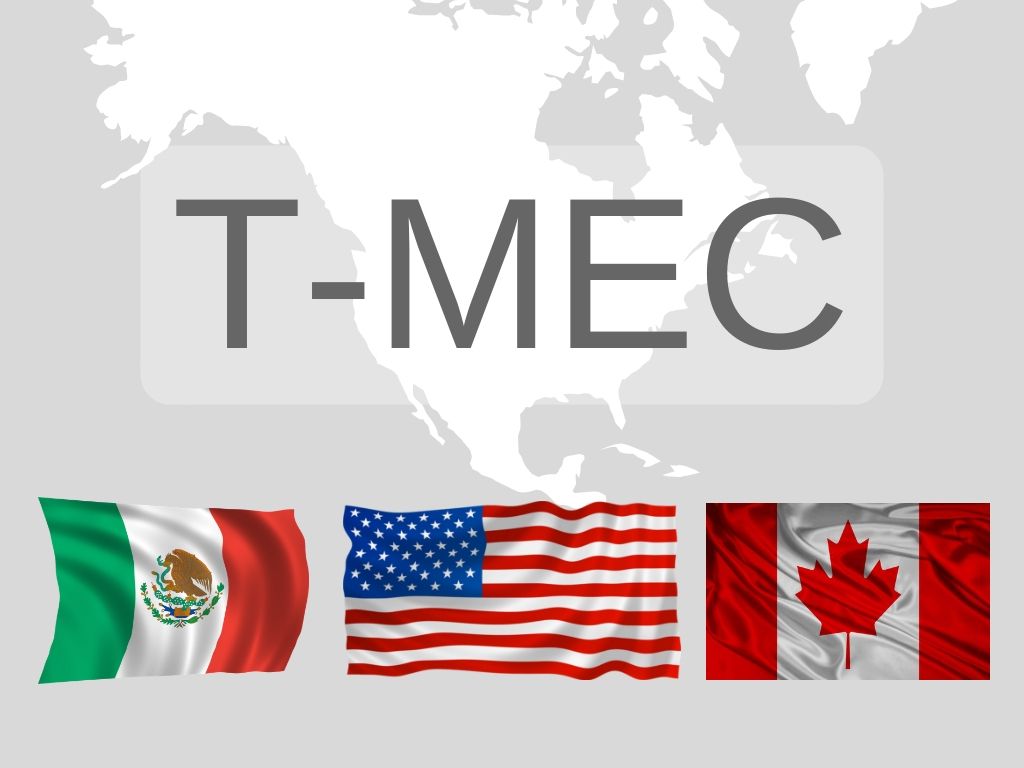The Government of Mexico proposed to open a space for cooperation within the framework of the USMCA on the lack of application of labor laws in the agricultural industry and the processing and packaging of protein in the United States.
The proposal came after the first request for a rapid labor response case was submitted on Monday within the framework of the USMCA.
This case is against Tridonex, an auto parts company established in Matamoros, Tamaulipas, with headquarters in Philadelphia (Cardone), United States, and controlled by a Canadian group.
The complaint was promoted by the Susana Prieto union (SNITIS), AFLCIO, the Cardone union in the United States and Global Trade Watch.
Then, this Wednesday, the United States initiated a complaint within the framework of the T-MEC’s rapid response mechanism against a General Motors plant in Mexico for alleged violations of workers’ rights.
This is the USTR’s first use of this mechanism.
Labor laws
On behalf of the Government of Mexico, Ambassador Esteban Moctezuma Barragán sent a letter this Wednesday to the Secretary of Labor, Martin J. Walsh, to convey the comments and concerns regarding the lack of application of labor laws that the Government of Mexico has detected in the agricultural industry, as well as protein processing and packaging in the United States.
Through said letter, the Government of Mexico proposed a space for cooperation within the framework of the USMCA, in accordance with the terms provided in Article 23.12, in order to identify actions that allow addressing the non-application of labor laws in certain sectors and states in the United States and thus fully guarantee the labor rights contemplated in US federal legislation and in Chapter 23 of the USMCA.
The foregoing, without renouncing the labor dispute settlement mechanisms provided for in the USMCA, and recognizing the importance of cooperation as a mechanism for the effective implementation of labor rights.
USMCA
Although at the federal level labor rights in the United States protect all workers, regardless of their immigration status, in practice, factors such as ignorance, fear and abuse by some employers prevent migrant workers from fully exercising their labor rights in some industries and states, as argued by the Mexican government
The letter indicates, among others, the following omissions:
- Non-payment of salary and the corresponding extraordinary time.
- Exclusion of agricultural workers from: a) overtime pay; b) the payment of the minimum wage in specific cases; and c) the right to organize and bargain collectively.
- Non-compliance by employers with rest and facility protocols for agricultural workers.
- The lack of federal regulation regarding heat stress in the agricultural industry.
- Wage disparity between packing house workers and protein processing plant workers.
- Limited access to hand washing and restroom stations in both industries.
- Non-compliance by employers with COVID-19 protocols and lack of safety and health measures to prevent contagion and spread in both industries.
- Lack of access for undocumented workers to certain legal remedies such as reinstatement or payment of lost wages.
- ack of attention to cases of violence and sexual harassment in both industries.
For the aforementioned reasons, the Government of Mexico considered it necessary to point out the importance of properly enforcing its federal regulations to guarantee the labor rights of workers in the agricultural and protein processing and packaging industries in the United States.
Provisions in the Treaty
According to Article 23.12 of the USMCA, the Parties recognize the importance of cooperation as a mechanism for the effective implementation of the Labor Chapter, to improve opportunities to improve labor standards and to continue advancing in common commitments regarding labor matters. , including the principles and rights established in the Declaration of the International Labor Organization (ILO) on Rights at Work.
In carrying out cooperative activities, the Parties will consider each Party’s priorities and complementarity with existing initiatives, with the aim of achieving mutual benefits and measurable labor results.
Each Party shall solicit the views and, as appropriate, the participation of its stakeholders, including worker and employer representatives, in identifying potential areas for cooperation and conducting cooperative activities.
The Parties may develop cooperation activities in the following areas:
- Labor laws and practices, including the promotion and effective implementation of the principles and rights established in the ILO Declaration on Rights at Work.
- Laws and labor practices related to compliance with ILO Convention No. 182 on the prohibition of the worst forms of child labor and immediate action for its elimination.
- Identification and movement of goods produced by forced labor.
- Combat forced labor and human trafficking, including on fishing vessels.
- Address violence against workers, including for union activities.
- Occupational health and safety, including the prevention of occupational injuries and illnesses.
- Institutional capacity of the administrative and judicial labor bodies.
- Inspectors and labor inspection systems, including methods and training to improve the level and efficiency of labor law enforcement, strengthen labor inspection systems, and help ensure compliance with labor laws.
- Remuneration systems and mechanisms for compliance with labor laws concerning working hours, minimum wages and overtime, and working conditions.
![]()

